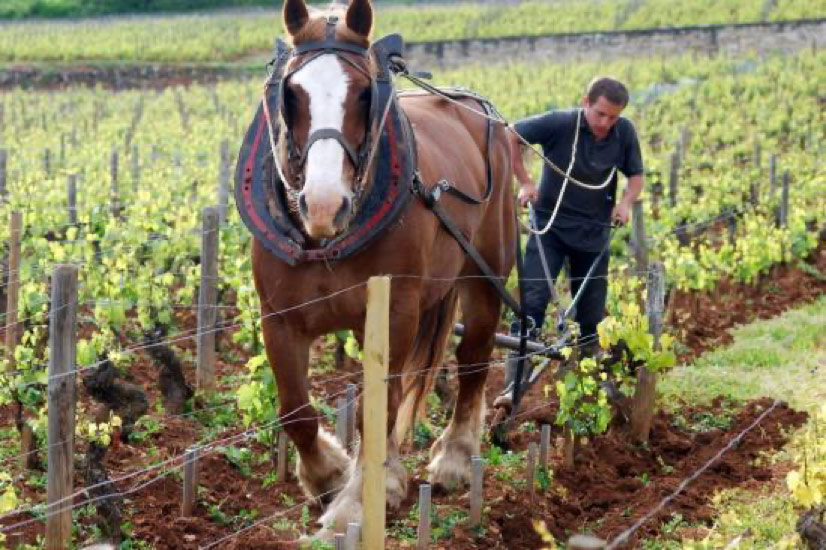Question asked to Franck Dubourdieu, Agricultural engineer and oenologist (1964), doctor graduated from the Faculty of Medicine of Bordeaux (1976), DUAD University Diploma in Tasting Aptitude (1983), author of guides on tasting Bordeaux wines since 1991 and from “From Terroir to the War of Taste”, active member of the AMLP (Association of Doctors against Pesticides), speaker at the Bordeaux Wine Institute (INSEEC group): the terroir, organic viticulture, tasting…… Blogger : www.bordeauxclassicwine.fr

In general, the average level of taste quality, of organic wines is higher than the wines made from conventional viticulture.
Organic requires know-how, experience and great sensitivity to be attentive to nature. The following observations relating to vines, grapes and organic wine, are shared by the entire organic wine growing community.
Why organic wine, if it is well produced, can it have a quality superior to the same wine in conventional culture ?
Organic wine does not have a particular, recognizable taste.
Organic vines grow better and resist better : They would have less degeneration linked to wood diseases, therefore less mortality. Perfused by systemic molecules, often nitrogenous, which penetrate through the cuticule and circulate in the sap.
Natural immunity : Protective molecules like antioxidants.
Resistance : The vine has a better resistance to excessive environmental influences (water stress, various deficiencies …), as well as a better longevity.
Pesticides increase the vigor of the conventional vine at the expense of the grapes : In 1980, in his book “Plants sick of pesticides” Francis Chaboussou, a repentant of INRA, said: “Pesticides cause changes in the metabolism of the plant, resulting in an enrichment of cellular liquids with soluble sugars and free amino acids “. The conventional vine loses its leaves in the fall later than the organic vines and produces more; hence thinning, disbudding and green harvesting, unnatural ways to eliminate part of the crop. In general, organic vines do not suppress harvest promises.
The maturity of the grapes is earlier : Precocity of a few days, even one to two weeks. Capital for difficult years, when the grape is struggling to reach full maturity. A major asset offered to the organic winemaker who can shelter his harvest before the others.
The grapes are naturally richer : As the yields are generally lower, the grapes are richer in acidity – a guarantee of balance, given the increasing alcoholic degrees and a better aging potential of the wine – in fruit, in polyphenols (tannins) and bioactive substances (Omega3). The plant produces more to defend itself.
The wine has a greater aromatic purity : The high purity of the best organic wines is attributed in particular to the absence of pesticide residues (especially those based on chlorine) which disturb the aroma of the wines (reduced taste, moldy). Arnaud Immélé “The worst being a harvest affected by gray rot, with pesticide residues”.
The wine is more authentic, closer to its “terroir” and its vintage : This is due to minimal interventionism in the cellars; in particular for wines in Biodynamic culture (Demeter, Biodyvin) whose specifications are more restrictive with regard to physical processes and authorized inputs.
Let’s add that in organic wines, we very rarely encounter make-up by the excess of oak wood or the unpleasant, discordant sensation of adding chips. This would correspond to the idea of a more natural wine and would be the pledge of a greater expression of the “terroir” and the vintage.
The question of indigenous yeasts : The majority of areas producing organic wines claim the fermentation of the must with the yeasts of their own (indigenous), considering that they are part of the “terroir”.
Organic wines have more fruit and finesse : It is therefore fairly obvious to note that an organic grape, coming from a vine cultivated in a natural soil, without toxic element, gives better fruitiness and greater finesse. So we can admit the “terroir effect” of Organic and even more of the Biodynamic culture, which all practitioners claim.
“Complex relationships link the soil, its microbes, the roots, the grapes, the wine. Winegrowers have understood this and wanted their soil to come back to life” – Claude and Lydia Bourguignon (Founder of the Laboratory for Microbiological Analysis of Soils (LAMS).
In summary, it is conceivable that the autonomy of the vine, in a living and detoxified soil, can find a more natural physiological balance with a wider and balanced mineral food, which is able to stimulate its natural defenses.
The autonomous plant, in harmony with nature, transfers to the grape and then to the wine, this surplus of soul, truth, naturalness, capable of moving us. It is this purity, this complexity, if not this finesse, that enlightened amateurs look for the best organic wines.
These are cross-observations, of an organic winemaker empiricism of several decades, which appear to me to participate in the high quality of many organic wines, but in no way a scientific demonstration.
